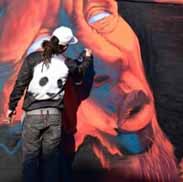AP World History Chapter 10 Vocab – Flashcards
Unlock all answers in this set
Unlock answersquestion
Byzantine Empire
answer
a continuation of the Roman Empire in the Middle East after its division in 395
question
Constantinople
answer
Previously known as Byzantium, Constantine changed the name of the city and moved the capitol of the Roman Empire here from Rome.
question
Justinian
answer
Byzantine emperor in the 6th century A.D. who reconquered much of the territory previously ruler by Rome, initiated an ambitious building program , including Hagia Sofia, as well as a new legal code
question
caesaropapism
answer
the doctrine that the state is supreme over the church in ecclesiastical matters
question
Eastern Orthodox Christianity
answer
A branch of Christianity that developed in the Byzantine Empire and that did not recognize the Pope as its supreme leader
question
icons
answer
religious images used by Eastern Christians to aid their devotions
question
Kievan Rus
answer
A monarchy established in present day Russia in the 6th and 7th centuries. It was ruled through loosely organized alliances with regional aristocrats from. The Scandinavians coined the term "Russia". It was greatly influenced by Byzantine
question
Prince Vladimir of Kiev
answer
He was the Russian prince who selected Greek Orthodoxy as the national religion. This added cultural bonds to the Byzantine Empire to the already existing commercial ties
question
Charlemagne
answer
King of the Franks (France) who conquered much of Western Europe, great patron of literature and learning
question
Holy Roman Empire
answer
Loose federation of mostly German states and principalities, headed by an emperor elected by the princes. It lasted from 962 to 1806.
question
Roman Catholic Church
answer
the Christian Church based in the Vatican and presided over by a pope and an episcopal hierarchy
question
Western Christendom
answer
Split in 1054 C.E. on account of differences in church leadership, languages, religious images and the filioque.
question
Crusades
answer
a series of military expeditions in the 11th, 12th, and 13th centuries by Westrn European Christians to reclaim control of the Holy Lands from the Muslims
question
European Cities
answer
Western Europe saw a major process of urbanization beginning in the eleventh century, with towns that created major trade networks and that were notable for the high degree of independence they often enjoyed
question
system of competing states
answer
The distinctive organization of Western European political life that developed after the fall of Western Roman Empire, in which many small existing independent states encouraged military and economic competition
question
Aristotle and Classical Greek Learning
answer
Aristotle was a Greek philosopher in 384-322 BC, his philosophy was famous in Western Europe, Greek rationalization helped shape the learning in many countries



